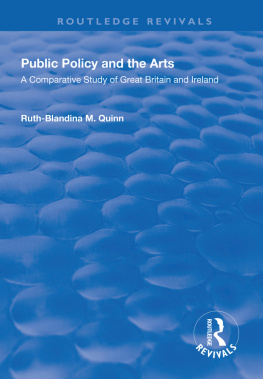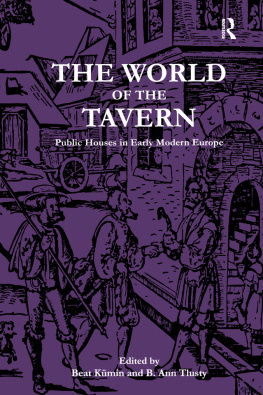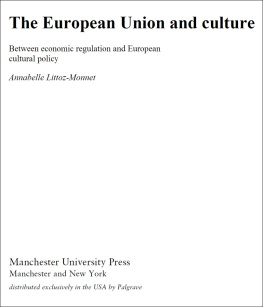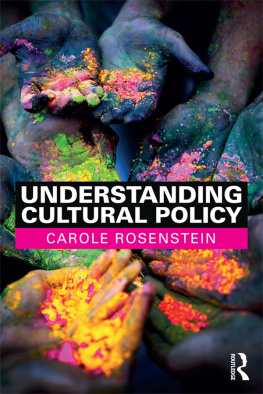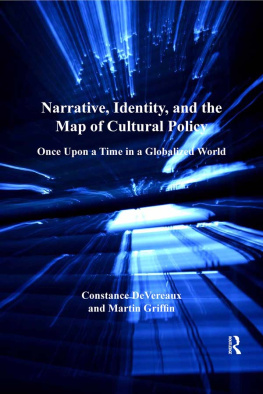PUBLIC RIGHTS, PUBLIC RULES
STUDIES IN STATES AND SOCIETIES
VOLUME I
GARLAND REFERENCE LIBRARY OF SOCIAL SCIENCE
VOLUME 1065
STATES AND SOCIETIES
DULA J. ESPINOSA, Series Editor
PUBLIC RIGHTS, PUBLIC RULES
Constituting Citizens in the World Polity and National Policy edited by Connie L. McNeely
PUBLIC RIGHTS, PUBLIC RULES
CONSTITUTING CITIZENS IN THE WORLD POLITY AND NATIONAL POLICY
EDITED BY
CONNIE L. MCNEELY
First published 1998 by Garland Publishing, Inc.
Published 2013 by Routledge
2 Park Square, Milton Park, Abingdon, Oxon OX14 4RN
711 Third Avenue, New York, NY, 10017, USA
Routledge is an imprint of the Taylor & Francis Group, an informa business
Copyright 1998 by Connie L. McNeely
All rights reserved
Library of Congress Cataloging-in-Publication Data
Public rights, public rules : constituting citizens in the world polity and national policy / edited by Connie L. McNeely.
p. cm. (States and societies ; v. 1) (Garland reference library of social science ; v. 1065.)
Includes index.
1. Citizenship. 2. Political sociology. I. McNeely, Connie L. II. Series. III. Series: Garland reference library of social science. States and societies ; v. 1.
JF801.P83 1998
323.6dc21
98-35377
CIP
ISBN 13: 978-0-815-32126-2 (hbk)
CONTENTS
Dula J. Espinosa
Connie L. McNeely
David Jacobson
Francisco O. Ramirez and John W. Meyer
Nitza Berkovitch
Mary Rauner
Lars Bo Kaspersen
Margaret R. Somers
John W. Mohr
Ann Shola Orloff
Barbara Hobson
T. Ryken Grattet
Dula J. Espinosa
Anthony W. Marx
John Boli
Recent dramatic changes in the modern world and in human relations at all levels of interaction have led to important questions about the basic sociopolitical, economic, and cultural relationships and concepts that have been the focus of scholarly and public debates. Accordingly, sociological arguments surrounding such topics as democracy and markets, sovereignty, citizenship, nationalism, diversity, and political and legal cultures are being discussed as part of a broader social and intellectual agenda. These are the kinds of issues that the books in the States and Societies series address. Principally concerned with issues in political sociology, broadly defined, they also speak to related topics in public policy, organizations, culture, and law and society, highlighting and examining how individuals, groups, and other social actors are defined and given meaning and the ways in which their interrelations are determined and controlled in this world of shifting realities. While focusing on contemporary concerns and debates, the books in the series generally employ an overall comparative and historical perspective to explore the underlying processes and developments affecting states and societies in the world today.
This current volume, Public Rights, Public Rules: Constituting Citizens in the World Polity and National Policy, unites several important contributors whose work reflects new development and insights in theoretical and empirical research. It brings together studies of global and comparative issues, as well as investigations considering local and national context, to offer a comprehensive understanding of the interplay of global and local forces in the conceptualization of citizenship, as they contribute to and are affected by the extension of both rights and rules in the public sphere. Several prominent themes in political sociology are addressed, including race, class, and gender; institutional sites, processes, and resources; and relationship between public and private definitions, concepts, structures, and practices. each chapter presents its own unique contribution set of concerns, while also addressing complementary issues through overlapping questions about citizenship and membership and sociopolitical, legal, and cultural structures, practices, and transformations. This volume provides a balance between diversity and thematic continuity, specificity and generality, and empirical study and theoretical reflection on citizenship in the contemporary world.
Dula J. Espinosa
University of Colorado
at Colorado Springs
NITZA BERKOVITCH
Ben Gurion University
JOHN BOLI
Emory University
DULA J. ESPINOSA
University of Colorado
Colorado Springs
T. RYKEN GRATTET
University of California
Davis, California
BARBARA HOBSON
Stockholm University
DAVID JACOBSON
Arizona State University
LARS BO KASPERSEN
Aarhus University
ANTHONY W. MARX
Columbia University
CONNIE L. MCNEELY
George Mason University
JOHN W. MEYER
Stanford University
JOHN MOHR
University of California
Santa Barbara
ANN ORLOFF
University of Wisconsin
Madison, Wisconsin
FRANCISCO O. RAMIREZ
Stanford University
MARY RAUNER
Stanford University
MARGARET R. SOMERS
University of Michigan
PUBLIC RIGHTS, PUBLIC RULES
INTRODUCTION
RIGHTS AND RULES
Connie L. McNeely
The dramatic changes that have occurred throughout the modern nationstate system, especially since the end of World War II and more recently, have engendered a renewed and increasing interest in issues of citizenship and rights. Public rights and responsibilities, rules and constraints, in terms of citizenship, national identity, and resources, are being renegotiated and recast everywhere in response to world-level pressures and local developments. Indeed, interest in these concepts as political and cultural formations, in their institutional and organizational determinants and effects, and in related transnational processes have brought into question the fundamental nature of nation, state, polity, and individual membership in the broadest sense. More to the point, changing notions of citizenship and rights have again been placed squarely on the sociological agenda, leading to explorations of related forms, legitimacy, jurisdiction, and practice in the contemporary world.
A central problem that cuts across much of this renewed interest in citizenship and polity membership, and related rights and rules, is the shifting nature of these social constructs in various settings and periods. Another emerging concern questions the usefulness of the concept of citizen itself, in light of its definition in relation to the nation-state and debates on the transformation of the nation-state and challenges to its authorityindeed, challenges to its very existence. In addition, the idea that citizenship and membership can be analyzed in terms of fixed homogeneous, stable social groupings and national polities is being soundly rejected as increasing numbers of studies and current events demonstrate the implausibility of such views. Such considerations suggest that traditional concepts of citizenship might themselves be problematic, and even inadequate in the face of new questions raised in recognition of global processes and effects in national arenas, and vice versa. What is at stake in these new debates surrounding membership and rights is the need for approaches that take into consideration the interplay of international and domestic sociopolitical, economic, and cultural contexts. Thus, it seems clear that we must engage an overall comparative and historical perspective to address these concerns in light of changing national and international interactions, conditions, and relations.


